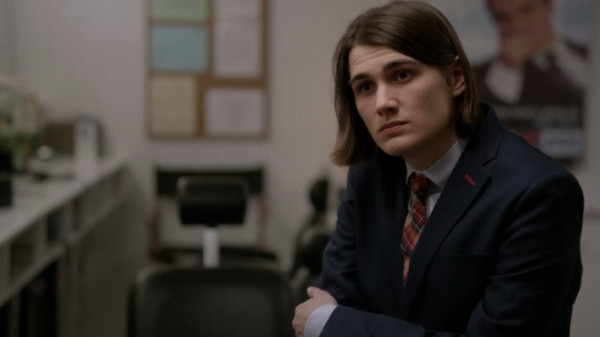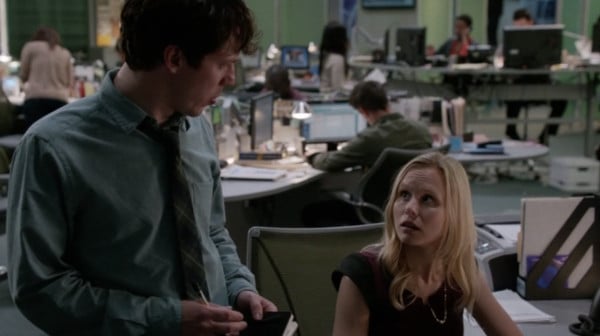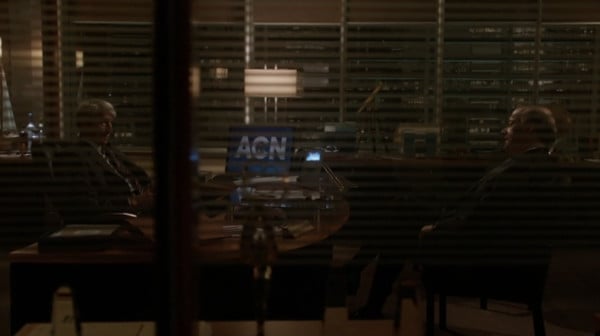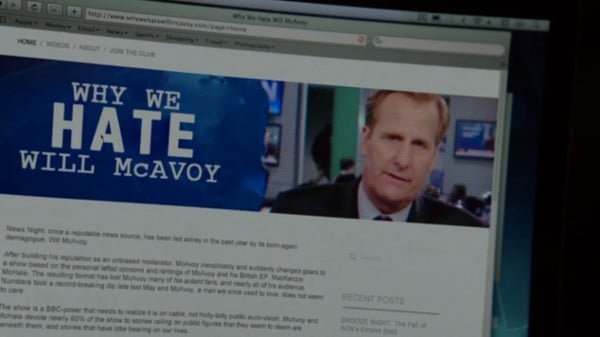The Newsroom’s Daddy Issues And Impending Doom
Sorkin's mission statement shifts from 'Bring Back The Good Old Days!' to 'What Now?'
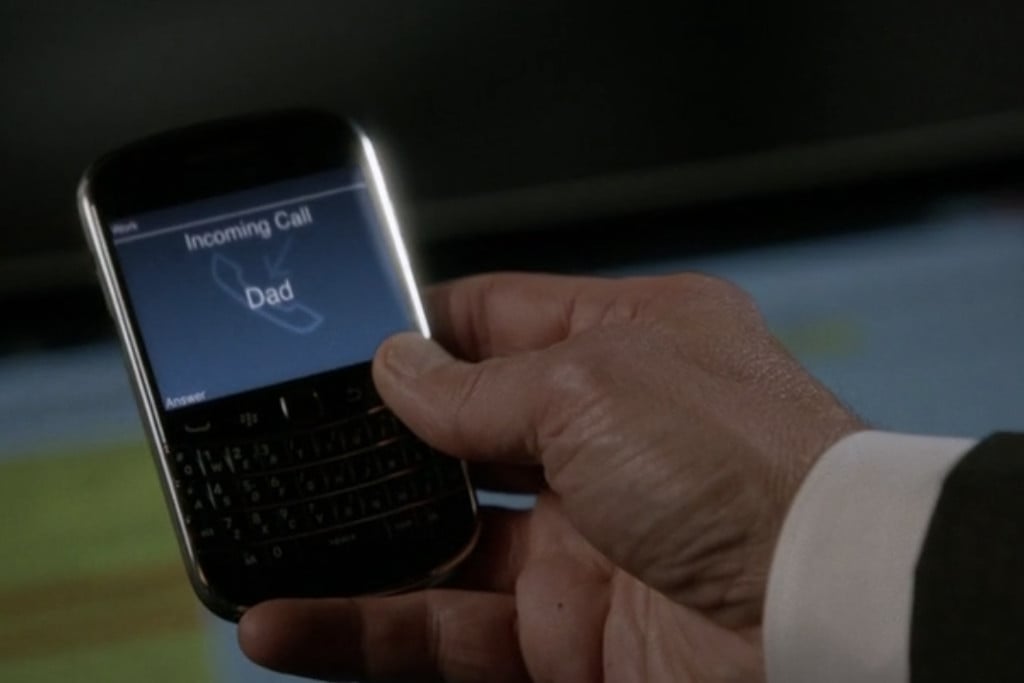
Here you’ll find a recap of this week’s episode of The Newsroom – and all the spoilers that implies.
–
Aaron Sorkin — yes, him again, because these columns are turning into an extended essay on him and his Whole Deal and I just can’t fight all the invitations to unpack authorial subtext in this show any more — is mourning the Golden Age. We all are, to an extent. Seen through the Instragram filter of selective memory, the ‘60s look glam, the ‘20s glitzy and carefree, the ‘40s an era of romance and sacrifice and sensible frocks.
“I think I would have done very well, as a writer, in the forties,” he says. “I think the last time America was a great country was then, or not long after. It was before Vietnam, before Watergate.”
That’s Sorkin, in that infamous “Internet Girl” interview, getting misty-eyed over the years before America drowned its innocence in jungles and dark hotel rooms (never mind that in the middle of the forties, America unleashed a weapon of war even more terrible than sarin gas on hundreds of thousands of civilians). The writer, Sarah Nicole Prickett, goes on to point out that it was a great country for great white men of the sort Sorkin loves writing about. It was not a great country for many women, or black people, or poor people, or gay people.
But goddamn, it was a great time for newsmen, wasn’t it? Jaunty newsreels played in cinemas as teenagers necked in the back row! Reporters with ‘PRESS’ cards stuck in their hatbands filed stories from banks of telephones in courtroom foyers! Serious men without a skerrick of makeup on delivered the news into people’s living rooms in a straightforward fashion, and people trusted them not to push an agenda. They valued good information over being first. Facts were facts, men were men, and women were women!
The ditching of the interminable Golden Age Of Journalism credits for this season’s interminable A Day In New York indicated that someone somewhere had realised that trying to invoke Edward R. Murrow as a stern father-figure who’d be Very Disappointed at the current state of American news was kinda dickish. It also showed that at least on some level, The Newsroom’s mission statement had shifted away from ‘Bring Back The Good Old Days!’ to ‘What Now?’
The truth is, Sorkin is as confused about the nature of modern newsgathering as he is about Lady Feelings — that is to say, he has a vague grasp of the basics, but when he actually writes it down and people act it out, it rings false too often. (Is it not, like, half of Neal’s job as The Internet Guy to sit there and monitor the #newsnight stream during the hour when the show’s on? Why is everyone giving this really long-winded explanation as to why he was reading the hashtag feed for the show he works on? And what’s with Maggie’s gross mini-arc? “I hate Jim’s stupid blonde girlfriend who loves Sandra Fluke soooo much and anyway, I’m all for sluts, mostly because I am one now because I take men home with me and let them do stuff to me so I don’t have to sleep alone because I’m all damaged now! Thanks for making me confess my sins, kindly Jim Harper!”) The only fix is to make episodes like this, where thematic coherence and deft pacing can paper over the cracks — just like all the characters are doing with their feelings and stuff, amirite?
Look, this show might be better if it was about news in the 1940s or 1950s* — partly because Sorkin’s smart, snarky dialogue might sound less precious in a period piece with a screwball bent, and because all his characters also obviously long to exist in a world where their banter and references would be appreciated by an adoring audience.
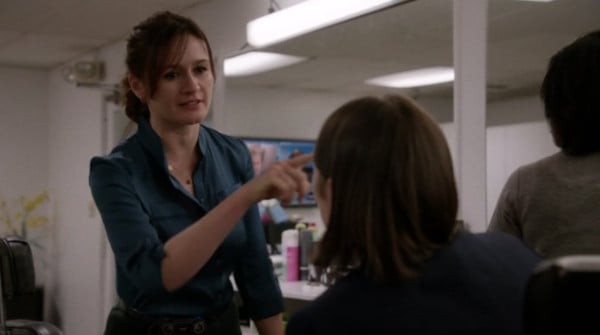
“Newsmen LIVE on ham sandwiches, kid! You’ll learn that soon enough. Ham sandwiches and moxie malt-shakes!”
But a period setting would also provide Sorkin with a comfortable refuge from modernity. There wouldn’t be this bizarre compulsion for someone to say the word “tweet” every 90 seconds, and we might have more scenes of the kind he does best: two people in a room, having a conversation. (I would watch a whole episode of Sam Waterston and Frank Wood — a wonderful stage actor you may recognise from his job at the NZ consulate — discussing the value of a proportional response over a bottle of scotch.)
There’s nothing inherently wrong with being fascinated by a time that was great for people like you, and there’s nothing inherently wrong with Sorkin’s longing for A Simpler Time, A Greater Time. That seems to be his motif in this episode, another in the small but significant collection of Sorkin episodes that focus on father-son relationships, death, and the passing of time. The West Wing’s few ‘period’ flashbacks often focused on characters’ relationships with their fathers. Toby Zeigler’s father was shown on the evening of Toby’s 1954 birth, chatting about Cole Porter while carrying out a job for Murder Inc., before turning up at his estranged son’s White House office in the present day; the hyper-principled Toby refuses to see him at first, due to the whole hired-killer thing. President Bartlet’s father (played by sometime-journalist Lawrence O’Donnell in flashbacks) was, like John McAvoy, sometimes physically abusive, and certainly cold and disapproving.
So it’s telling that this episode bounces between those same themes. Some characters are cursing the modern age: nekkid pictures of Sloan are everywhere instantly thanks to the Internet, Twitter is infuriating, the pressure created by instant access to everything causes problems for Maggie. Some are thrashing at the bonds of parental relationships: Will doesn’t want to call his father, Sloan can’t bear to call her father who definitely saw her naked on the internet that morning, Jesse doesn’t want to come out to his parents in person. And the spectre of death looms over the entire episode: Trayvon Martin, Tyler Clementi, the civilians sacrificed during Genoa, the men saved during Genoa, Daniel The Adorable Plot Device — and John McAvoy, who’s obviously doomed the second Will says the words “mild heart attack”. Will’s on-air blank anguish at the end of the episode seems to be a signal: the centre cannot hold. Surely some revelation is at hand.
*Also, that show exists, and it’s called The Hour, and while it admittedly starts with an advantage in that it is British and so does not have to exist within a constantly remarked-upon thematic framework of What It Is To Be American, it is just about perfect in everything it does, from Romola Garai’s tailored ‘50s suits to Ben Whishaw’s elfin reporter-mania. It is, sadly, a member of the Deadwood Club For Incredibly Good Shows That Were Cancelled After A Cliffhanger Season Finale, so fair warning.
–
Caitlin Welsh is a freelance writer. She has written for The BRAG, Mess + Noise, FasterLouder, Cosmopolitan, TheVine, Beat, dB, X-Press, and Moshcam.
You can follow The Newsroom with her here.
